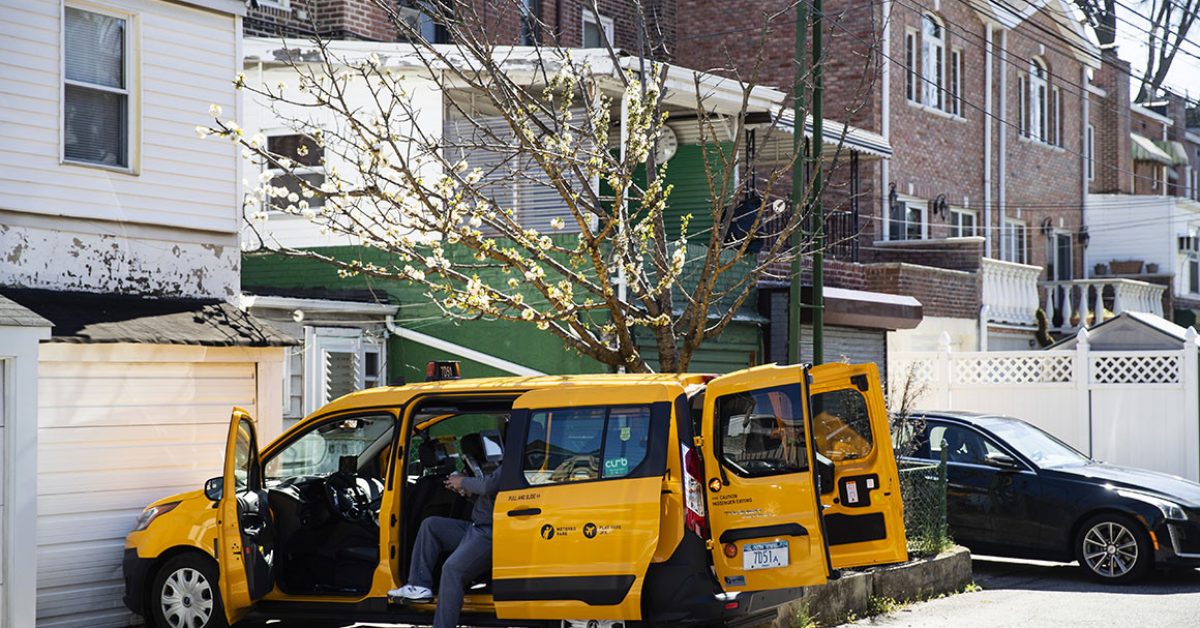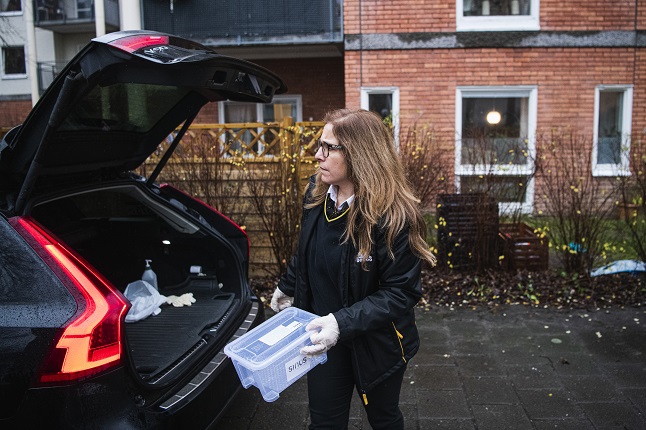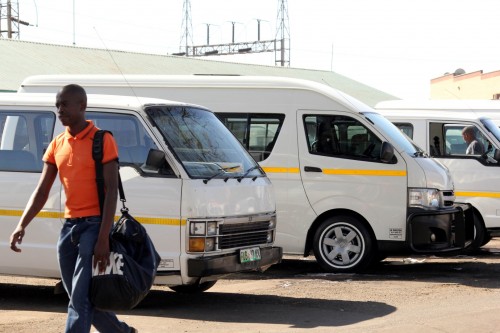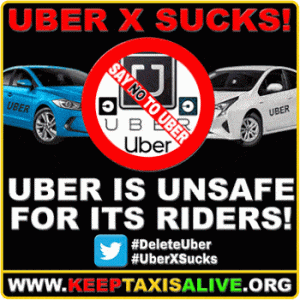The $2 trillion rescue package was supposed to help out Uber drivers, freelance workers and other independent contractors who usually aren’t eligible for unemployment benefits.
But so far, this 23 million-strong group of working Americans is running into dead ends, delays and bureaucracy trying to collect an unemployment check.
One reason for the delay is that the Department of Labor didn’t put out its first set of guidelines for the new program until April 5, more than a week after the stimulus passed, leaving state unemployment offices stalled.
The states, deluged by an unprecedented flood of claims from millions of laid-off workers, are also struggling to set up new systems and calculate how much benefits workers are owed, urging frustrated applicants to wait their turn — in some cases for weeks.
“We still don’t know how we’re going to survive this,” said Mekela Edwards, a Lyft and Uber driver in California who still hasn’t been able to receive any unemployment benefits. “Me personally, I don’t know how I’m going to survive this.”
Pennsylvania and Massachusetts, for example, are among a number of states asking independent contractors not to file until the end of the month, at the earliest, to give them more time to set up application systems. Michigan announced that gig workers could start applying Monday of this week, only to have the flood of applications take down its website for four hours. And in Illinois, which has worked with a private vendor to get a new system set up, Gov. J.B. Pritzker said this week that benefit checks are likely still a month away from reaching gig workers who have already been out of work for weeks.
The result is that gig workers and other independent contractors — of whom there are some 23 million in the country, according to the U.S. Chamber of Commerce — remain largely uncounted in the already staggering tally of nearly 17 million Americans who applied for jobless benefits in the three weeks ending April 4. Weekly claims are expected to remain near historic highs when DOL releases new weekly data on Thursday, as states continue to work through a backlog of applications overloading their systems.
“People want their claims yesterday,” said Caleb Frostman, secretary of the Wisconsin Department of Workforce Development, where officials are hoping to have the application system for gig workers set up by early next week. “It’s just taking some time to get that ready to go.”
So far, only 29 states are able to pay out the additional $600 weekly unemployment benefit Congress provided under the CARES Act, Labor Secretary Eugene Scalia said Wednesday. “How long that takes will vary by state,” Scalia said during a press call. “Some states will take longer because they rely on computer equipment that is 40 years old and in need of significant IT support.”
“Why they did it through the state employment system, I will never understand that. It just seems like you’re adding bureaucracy,” Florida Gov. Ron DeSantis said on Tuesday. “But that’s what they did.”
States meanwhile have been struggling to figure out how to calculate weekly benefit levels for these self-employed workers, whose wages are less straightforward and harder to verify than those spelled out on a W-2 tax form. And some officials at the state level and in Washington have criticized the Trump administration for restricting eligibility in its guidance well beyond, they say, what Congress intended.
“After Congress passed the CARES Act, the U.S. Department of Labor attempted to limit this program by creating real regulatory obstacles for implementing it,” Pritzker said Monday. “It has taken U.S. Department of Labor weeks to issue guidance to the states. And they’ve promulgated confusing and very stringent regulations that attempt to severely limit who can actually qualify.”
“Despite the labyrinthian regulations,” the Illinois governor said, his state’s payments to independent contractors should go out within a month.
But despite calls for the DOL to clarify its instructions on matters such as how the new benefits apply to app-based workers, senior department officials say the guidance documents the department has issued over the past few weeks are sufficient to allow states to administer the benefits.
Stalled assistance for gig workers is just the latest example of how Congress’ record stimulus is traveling slowly to many Americans who need it most. Many laid-off employees are also still waiting for their benefit checks, while small businesses are fighting to access much-needed loans. Looking ahead, governors are calling for an “additional and immediate” $500 billion paid directly to the states.
But gig workers face difficulties unique to their independent status.
In Colorado, officials said they’ve been working to get the system for contractors set up as quickly as possible. But they were still trying to master DOL’s rules late last week, and since then they’ve been working to apply them to their system and get it ready for public use. They hope to make an announcement later this week.
“You have to scale it properly, you have to test it properly, you have to ensure that when the benefits go out that they’re accurate and they’re paying the right people the right amounts,” said Jeff Fitzgerald, unemployment insurance division director at Colorado’s Department of Labor and Employment. “That’s no small matter when we’re talking about a universe of this many people.”
Also adding to the confusion and delay are varying state laws and a legal debate over whether app-based workers should be classified as “employees” who are eligible for traditional unemployment benefits, or “independent contractors” who have to apply for benefits under the new program.
California, which last year passed a sweeping bill aimed at compelling businesses to reclassify many independent contractors as employees, started processing unemployment applications from gig workers and others as though they were employees. That prompted one group backed by Uber, Lyft and Doordash to circulate a petition urging the state to set up the new system.
But groups representing ride-hailing drivers in California and New York, where state law says app-based workers are employees who are already eligible for traditional jobless benefits, complain that gig companies aren’t sharing payroll information with state unemployment agencies. That prevents the state from calculating what their weekly benefit should be.
The New York Taxi Workers Alliance collected more than 1000 signatures on a petition demanding that Uber immediately provide New York’s labor department with drivers’ wage information so the state can process their weekly benefit amount.
“Nobody has gotten anything,” said Nicole Moore of Rideshare Drivers United, an association of Uber and Lyft drivers in California. She says drivers who applied in California under the normal unemployment insurance system were told that their weekly benefit amount was zero because the state couldn’t verify their income.
Without verifying a worker’s income, states are also unable to pay out the $600 weekly sweetener that Congress added to weekly unemployment checks. That’s because, according to DOL guidelines, workers must qualify for at least $1 a week in benefits to be eligible for the $600 add-on.
An Uber spokesperson countered some of the claims made by the ride-hailing groups, saying the company is sharing its earnings data with the state of New York, but was unable to provide further details on the process or on the situation in California. A Lyft spokesperson said the company has been actively sharing details with drivers about what benefits they’re eligible for under the stimulus plan and will continue to provide information “as it becomes available from the government.”
California Labor Secretary Julie A. Su stressed earlier this week that Californians who may have been “misclassified” as independent contractors rather than employees have the right to state unemployment benefits, but said verifying their earnings would make the process take longer than usual. She also suggested that applying for the federal PUA program, which would be up and running in the state in two weeks, as an alternative may get money into the pockets of such workers faster.
But at least one state said it has been able to start getting the benefits into the pockets of newly eligible workers — by ignoring federal requirements on how to implement the program. Louisiana’s workforce commission said it’s allowing independent contractors to receive unemployment benefits before they answer a set of questions required under federal guidelines. The state said Monday it has already paid $1.7 million in benefits to such workers under the new program.
“This pandemic doesn’t discriminate,” Louisiana Workforce Commission Secretary Ava Dejoie said in a statement. “Self-employed workers are just as concerned about paying for basic necessities: rent, mortgage, utilities and such, as everyone else. Delaying their payments was simply unacceptable.”
Arek Sarkissian, Katherine Landergan, Katy Murphy and Shia Kapos contributed to this report.
Follow us on our Facebook and Twitter pages for the latest stories, products & updates.






















